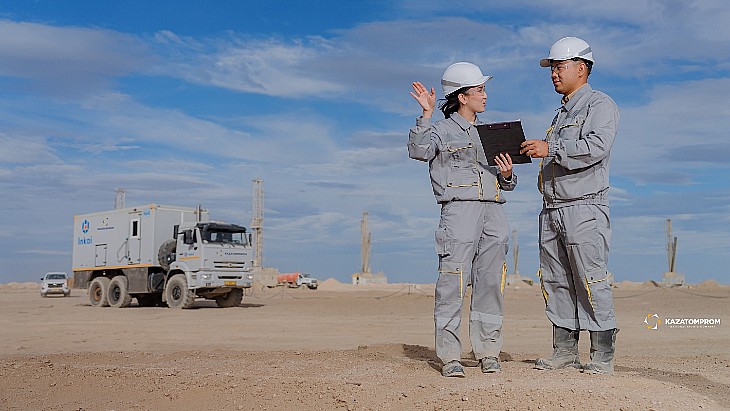A significant proportion of the Kazakh uranium producer's output is exported on a well-established primary route through Russia to the Port of St Petersburg. This presents a specific set of risks associated with transit through the territory of Russia, shipping insurance, and the delivery of cargo by sea vessels.
To date, the company said, there are no issues or restrictions on its activities related to the supply of its products worldwide, and it shipped its second quarter volumes via St Petersburg without any disruptions or logistical/insurance-related issues. However, it said, it continues to monitor the "growing list of sanctions" on Russia and the potential impact they could have on the transportation of products through Russian territory.
"The Trans-Caspian route, which has been successfully used as an alternative route since 2018, helps to mitigate the risk of the primary route being unavailable, for any reason," the company said. "In the current environment of geopolitical uncertainty, Kazatomprom has sought to reinforce a number of transit agreements with the pertinent authorities along the Trans-Caspian route; the Company has received approval to ship 3,500 tons of uranium and has applied for an increase in order to accommodate potential total shipments by Kazatomprom and its joint venture partners in excess of that quota."
Earlier this week, Canadian company Cameco - a partner with Kazatomprom in the Inkai joint venture - said deliveries of its share of output from Kazakhstan are on hold until an alternative route avoiding Russian railway lines or ports is finalised. Kazatomprom said it was working to help its partners to ship material through the Trans-Caspian route, and noted that whether shipped by Kazatomprom or its partners, the product remains of Kazakh origin until its arrival at a western conversion facility. The company said it also maintains inventories at a number of global locations and has the ability to negotiate swaps with partners and customers to help mitigate potential risks to deliveries.
Guidance unchanged
Uranium production both for the second quarter of 2022, at 5,116 tU (100% basis), and for the first half of the year (10,070 tU, 100% basis) was lower than for the same periods of 2021. Kazatomprom said this was due to the impact of the COVID-19 pandemic on wellfield development in 2021. "There is typically an eight- to ten-month lag between wellfield development and uranium extraction by in-situ recovery, therefore in 2021, delays and/or limited access to certain key materials and equipment affected the wellfield commissioning schedule at the time, resulting in lower production a half-year later in 2022," the company said.
Kazatomprom said it is making every effort to achieve it despite these challenges, although final year-end volumes could fall short if wellfield development and supply chain issues continue throughout the second half of the year. Its 2022 production guidance remains unchanged at 21,000-22,000 tU (100% basis), and the company targets an inventory level of around six to seven months of annual attributable production. It made "several transactions" to purchase material in the spot market during the quarter and said it will monitor market conditions for opportunities to optimise its inventory levels.

.jpg)



_57190.jpg)
_49098.jpg)






